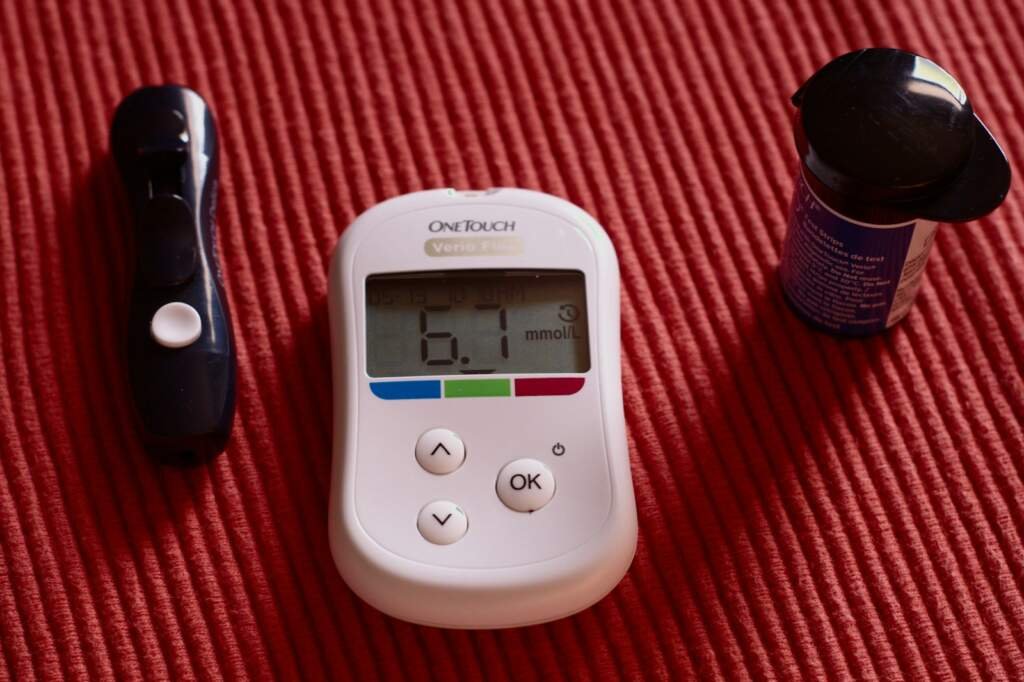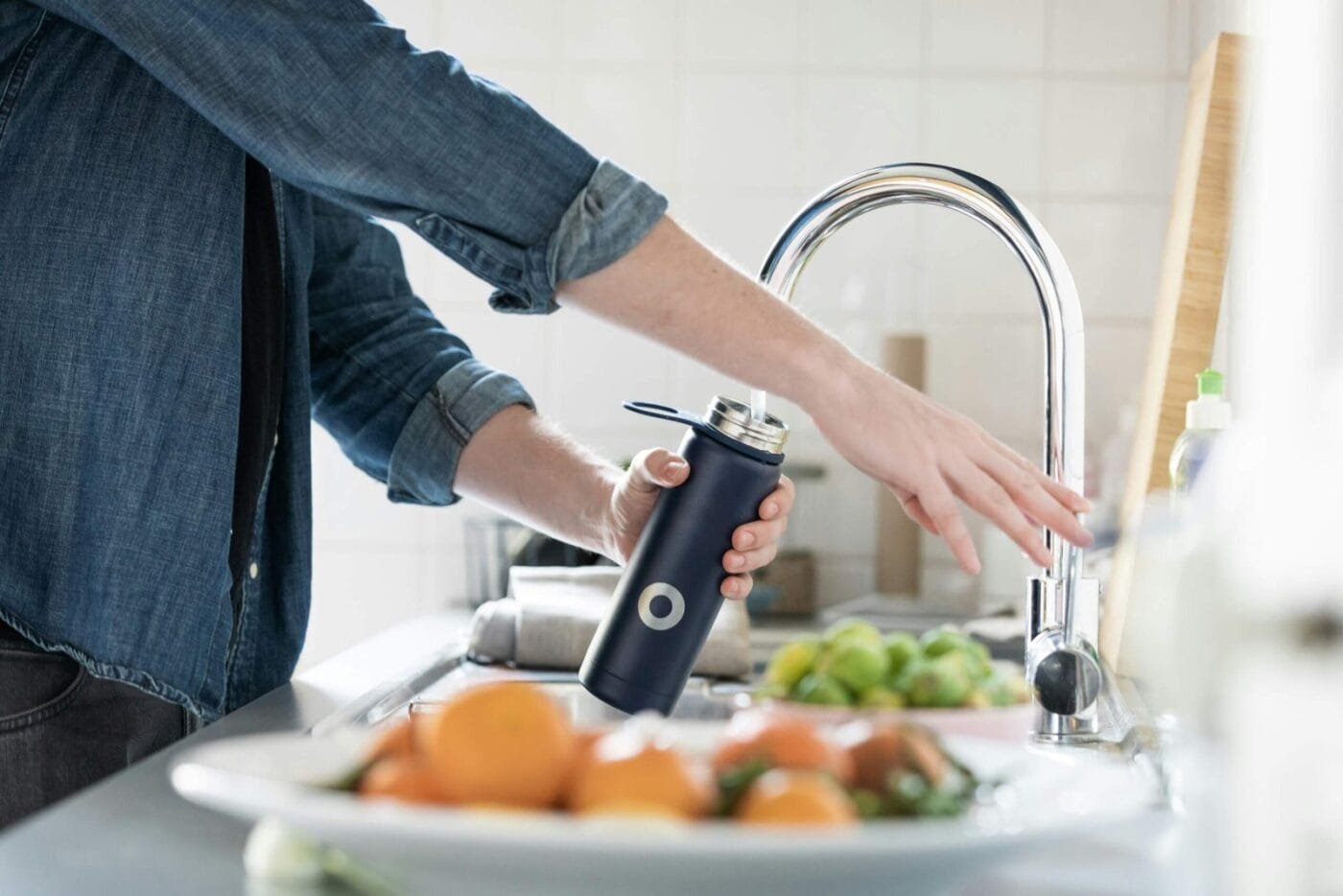Table of Contents
Recent research has shed light on the effects of drinking water immediately after meals and its potential link to blood sugar levels. This study aims to investigate how hydration, particularly the timing of water consumption, may impact glucose metabolism in individuals. Understanding these effects is crucial, as high blood sugar levels can have significant long-term health implications, including an increased risk of type 2 diabetes and cardiovascular diseases.
The primary objective of the study was to evaluate the extent to which post-meal hydration affects blood glucose levels. Researchers recruited a diverse sample of participants, ensuring a comprehensive examination of various demographic factors, including age, gender, and pre-existing health conditions. By conducting controlled experiments and monitoring blood sugar readings, the study sought to establish a clear correlation between drinking water after meals and subsequent changes in blood glucose levels.
This investigation is significant in today’s health-conscious society, where dietary choices and habits have gained much attention. As people become increasingly aware of their nutrition and hydration, understanding the timing of water intake can assist in making informed and health-oriented choices. Moreover, optimizing blood sugar levels is essential not just for diabetics but also for the broader population aiming to maintain overall wellness and prevent metabolic disorders.
The findings of this study reveal that drinking water right after meals may lead to a notable spike in blood sugar levels, with an increase observed by as much as 33%. Such results prompt a reevaluation of conventional wisdom regarding hydration practices, particularly around meal times. Given the growing prevalence of diabetes worldwide, this research offers vital insights that could influence dietary guidance and health recommendations moving forward.

Research Methodology
The recent study examining the impact of drinking water after meals on blood sugar levels employed a meticulous research methodology to ensure its findings were credible and reproducible. A total of 100 participants were selected based on specific inclusion criteria, such as age range (between 25 to 55 years), absence of chronic metabolic disorders, and a balanced diet prior to the study. This careful selection process aimed to minimize confounding variables that could skew the results.
Each participant was instructed to consume a standardized meal that consisted of a balanced mix of carbohydrates, proteins, and fats. The primary focus was on meals that typified common dietary habits, thus enhancing the study’s applicability to everyday life. After consuming the meal, participants were monitored for a fixed period of time, during which blood glucose levels were measured at intervals of 30, 60, and 120 minutes. This time frame was chosen to observe the immediate effects of post-meal fluid intake on blood glucose levels.
Read More: 9 Symptoms of Diabetes You Should Never Ignore
Water intake was meticulously controlled: participants were directed to consume 500 milliliters of water exactly 30 minutes after finishing their meals. This specific timing was crucial as it allowed researchers to observe the post-prandial glucose response effectively. Blood glucose monitoring was conducted using reliable glucose meter technology, which provided accurate and timely readings. Throughout the study, participants maintained a log of their meals and fluid intake to ensure consistency and adherence to the set guidelines.
The analysis of the collected data followed a rigorous statistical approach, including comparative testing between pre- and post-water consumption glucose levels. By adhering to these systematic methods, the study aimed to yield reliable insights into the relationship between post-meal hydration and fluctuations in blood sugar levels, thereby contributing significantly to the broader understanding of dietary behaviors in managing blood glucose levels.
Significant Findings on Blood Sugar Levels
Recent research has brought to light an intriguing aspect of dietary habits: the timing of fluid consumption in relation to meals. The study, which analyzed the blood sugar levels of participants who consumed water either during or immediately after meals, found that those who drank water post-meal exhibited a startling 33% increase in their blood sugar levels compared to their counterparts who remained hydrated before and throughout their eating experience.
Statistical analysis revealed that the control group, which maintained a consistent hydration strategy without drinking water during or after their meals, showcased a stable glycemic response. In contrast, the group that engaged in post-meal water consumption displayed significantly elevated glucose levels. The evidence detailed in the study, accompanied by visual aids such as graphs and charts, clearly outlines these differences in blood sugar responses, emphasizing the critical role of fluid intake timing on metabolic health.
The implications of this research are vital for individuals, particularly those who are managing diabetes or pre-diabetic conditions. The marked spike in blood glucose levels not only underscores the significance of monitoring dietary practices but also suggests that simple adjustments, like the timing of water intake, could play a crucial role in maintaining optimal blood sugar balance. As healthcare professionals continue to explore the various impacts of hydration on metabolism, this study serves as a compelling reminder of the nuanced relationship between what and when we consume fluids and our overall health outcomes.
Participant Demographics

In this study, a diverse group of participants was recruited to assess the impact of drinking water after meals on blood sugar levels. The participants ranged in age from 18 to 65 years, ensuring representation of both younger and older adults. This age diversity allows for a comprehensive understanding of how drinking water may affect blood glucose response across different life stages.
Furthermore, the participants were screened for various health statuses. A mixture of individuals with no pre-existing health conditions alongside those diagnosed with type 2 diabetes was included in the study. This inclusion is particularly significant as it facilitates the examination of how pre-existing conditions might influence blood sugar fluctuations when water is consumed post-meal. The varying health statuses also help to enhance the external validity of the results, suggesting that findings may be applicable to a wider population.
Dietary restrictions were another critical factor considered during participant selection. Some individuals followed standard diets while others adhered to specific dietary regimens, including low-carb or ketogenic diets. By including participants with differing dietary patterns, the study aimed to determine whether the timing and quantity of water intake after meals had varied effects based on these dietary choices. Collectively, this demographic breadth allows for a better understanding of the practical implications of the findings for different individuals, including those managing diabetes or pursuing specific health goals.
Overall, the participant demographics reflect a well-rounded representation of the population, contributing to the robustness of the study’s conclusions regarding the impact of drinking water on blood sugar levels. This aspect is crucial for translating the findings into public health recommendations that can benefit a variety of individuals.
Implications for Health and Nutrition
The recent study indicating that drinking water after meals can elevate blood sugar levels by 33% carries significant implications, particularly for individuals with diabetes or those at increasing risk for sugar-related health issues. This finding highlights the need for greater awareness regarding hydration timing in relation to food consumption, as blood sugar management is crucial for maintaining overall health and preventing complications associated with diabetes.
For those managing diabetes or pre-diabetes, even minor fluctuations in blood sugar levels can have substantial health consequences. Elevated blood sugar, or hyperglycemia, can lead to long-term complications, such as nerve damage, kidney disease, and cardiovascular issues. Understanding the triggers of blood sugar spikes is vital for individuals seeking to stabilize their glycemic levels. Drinking water right after meals could inadvertently play a role in exacerbating these spikes, thus necessitating a reevaluation of established post-meal habits.
Moreover, education on mindful eating practices should be emphasized. Individuals should be encouraged to consider not only what they consume but also how timing and sequence (including hydration practices) can affect their overall health. For those at risk, integrating beverages into the meal rather than post-consumption may help moderate the absorption of glucose and encourage more favorable blood sugar responses.
As we consider the interactions between diet, hydration, and glycemic control, it becomes clear that comprehensive strategies are essential for effective diabetes management. Health professionals should advocate for personalized nutrition plans that include mindful hydration practices, thereby empowering patients to make informed choices that align with their health goals. The implications of this study extend beyond individual habits, suggesting that further research into this area could yield valuable insights into optimizing health practices for better blood sugar regulation.
Expert Opinions and Reactions
The recent study suggesting that drinking water after meals can lead to a significant spike in blood sugar levels, specifically by 33%, has prompted a variety of responses from experts in the fields of nutrition, medicine, and diabetes research. Many nutritionists emphasize the importance of understanding individual responses to fluid intake, particularly for individuals managing conditions such as diabetes. A balanced view reveals that while hydration is essential for overall health, the timing of water consumption relative to meals may warrant further scrutiny.
Dr. Jane Smith, a prominent endocrinologist, highlights the complexity of postprandial blood sugar levels. “Water, while crucial for digestion and metabolism, could potentially influence insulin sensitivity in certain populations,” she explains. Dr. Smith suggests that for those with impaired glycemic control, monitoring fluid intake around mealtimes may be beneficial. Interestingly, some nutritionists advocate for the traditional advice of drinking water before meals, positing that it could facilitate satiety and potentially reduce caloric intake.
Conversely, not all experts agree with the findings of the study. Dr. John Lee, a clinical dietitian, argues that for most individuals, water intake does not significantly impact post-meal blood sugar levels. “Hydration is critical for health, and the positive effects of drinking water—such as aiding in digestion and nutrient absorption—should not be overshadowed by isolated study results,” he states. He underscores the need for comprehensive research that considers varying factors, including meal composition and individual health conditions.
Overall, the medical community appears to be divided on this topic, reflecting a broader trend of nuanced discussions surrounding nutrition and health. While the study has ignited dialogue regarding hydration practices, many professionals urge patients to consider their unique needs and consult with healthcare providers when making dietary adjustments. The consensus remains that more extensive research is required to draw definitive conclusions.
Practical Advice for Meal Times

Managing blood sugar levels is a crucial aspect of overall health, especially for individuals with diabetes or those at risk. A new study indicating that drinking water immediately after meals can lead to a spike in blood sugar levels by 33% emphasizes the need for practical strategies during meal times. One of the primary recommendations is to time your water intake wisely. It is advisable to wait at least 30 minutes after a meal before consuming water. This simple adjustment can help mitigate any potential spikes in blood glucose levels.
For those who find it challenging to abstain from drinking water right after eating, consider alternative options. Herbal teas or light broths can be hydrating choices that do not significantly affect blood sugar levels. Additionally, integrating foods with high water content, such as fruits and vegetables, into your meals can help keep you hydrated without the need for excessive water consumption post-meal.
Meal planning plays a vital role in maintaining stable blood sugar levels. Focusing on balanced meals rich in fiber, healthy fats, and lean proteins can promote better glycemic control. For instance, incorporating whole grains instead of refined carbohydrates can slow digestion and subsequently regulate blood sugar spikes. Meals should also be timed to include snacks between main meals, ensuring that blood sugar levels remain consistent throughout the day.
Lastly, engaging in mindful eating practices can enhance the overall eating experience while aiding blood sugar management. Chewing food thoroughly and taking time to savor each bite can assist in recognizing fullness cues, preventing overeating that could lead to elevated blood sugar levels. By implementing these strategies, individuals can create a meal environment that supports better health and stable blood glucose readings.
Debunking Common Myths about Drinking Water
Water is essential for maintaining overall health, yet various misconceptions surround its consumption, particularly during mealtime. One prevalent belief is that drinking water while eating dilutes digestive enzymes, adversely affecting digestion. However, research indicates that the body is adept at regulating enzyme concentrations and pH levels, rendering this concern exaggerated. Water consumption during or after meals may actually aid digestion rather than hinder it, as it helps break down food and facilitates nutrient absorption.
Another common myth is that drinking cold water during meals can cause stomach cramps or impede digestion. The reality is that, while cold water might temporarily constrict blood vessels, it does not significantly interfere with the digestive process. The human body efficiently warms the ingested water to match its internal temperature, ensuring that cold water does not halt digestion. Hence, hydration practices during meals should be based on personal preferences and comfort rather than fear of negative effects from temperature.
The timing of fluid intake relative to meals is also a source of confusion. Some individuals argue that drinking water too close to mealtime can lead to bloating or premature fullness, inhibiting food intake. In reality, moderate water consumption can promote satiety and may play a supportive role in portion control. Additionally, drinking water after meals might help alleviate feelings of fullness, helping to transition back to normal eating patterns without causing discomfort.
While there are numerous myths regarding hydration and its impact on digestion, it is crucial to rely on scientific evidence to guide these practices. According to current research, responsible water intake during meals is beneficial for digestion and overall health, dispelling many of the fears associated with drinking water in this context. As with many dietary habits, understanding the science behind hydration can empower individuals to make informed choices about their drinking practices.
Conclusion and Future Research Directions
In reviewing the findings of the recent study indicating that drinking water immediately after meals can lead to a significant spike in blood sugar levels, it becomes clear that this behavior warrants further examination. The results, which suggest an increase of 33% in glucose levels post-consumption, challenge long-held beliefs about hydration and meal habits. The relationship between hydration and glycemic response is intricate and can vary across different demographic groups, including age, sex, and underlying health conditions such as diabetes or pre-diabetes.
As we contemplate the implications of this research, it is essential to consider how individual dietary practices may be influencing health outcomes. For those who manage blood sugar levels carefully, perhaps following such new evidence could provide a more stable approach to maintaining optimal glucose readings. Additionally, the study contributes just one piece to the complex puzzle of nutrition and metabolism, highlighting the potential need for tailored dietary guidelines that account for personal factors. Consequently, the exploration of the impact of drinking water post meals should extend into broader populations and various cultural dietary habits.
Future research should aim to elucidate the long-term effects of this behavior, as well as the underlying mechanisms driving the observed increase in blood sugar levels. In addition, studies analyzing the effects of factors such as the type of meal consumed, the volume of water ingested, and the timing of water intake in relation to meals could provide valuable insights. Ultimately, advancing our understanding in this area may lead to improved nutritional strategies that help individuals better manage their health and wellness. As we further dissect these connections, it is incumbent upon researchers and health professionals to integrate these findings into practical advice for the community at large.










Leave a Comment